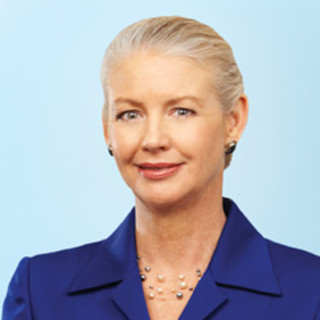The ACC Scientific Sessions 2022 were the first major cardiovascular on-site meeting in over two years due to the COVID-19 pandemic. Surprisingly to me, there were reportedly nearly 15,000 on-site attendees! Proof of vaccination and masking mandates must have been reassuring enough as the convention center was booming with lively presentations, discussions, cheering, and networking. Once again, receptions and dining were robust, with colleagues getting together for food, drink, and conversation. I chaired several sessions that included virtual presenters and discussants — the AV worked fabulously — we have all become Zoom experts. Another unique aspect and a return to major cardiovascular meetings a decade ago — including many international attendees and languages overheard at ACC 2022. It is very exciting to think we are back to the global participation and reach we previously had with international colleagues in cardiovascular science and care. Congratulations to the ACC leadership and staff on a meeting well done!
The EDIT-CMD trial was presented at the ACC Scientific Sessions. I was honored to be a discussant of this strategy trial of 85 randomly assigned patients with angina and nonobstructive CAD who underwent invasive coronary function testing to receive up to 360 mg diltiazem or placebo per day before repeat testing at six weeks. All patients had chronic angina occurring at least twice per week and coronary vasomotor dysfunction confirmed by the presence of vasospasm (after intracoronary acetylcholine provocation) and/or microvascular dysfunction, defined as coronary flow reserve < 2 or index of microcirculatory resistance 25. The mean age of patients was 58 years, and about two-thirds were women. The results demonstrated that six weeks of treatment with diltiazem was not effective in improving coronary vasomotor dysfunction, symptoms, or quality of life, as compared to placebo, although diltiazem appeared to reduce epicardial spasm.
The EDIT-CMD trial is an addition to our knowledge regarding the needed evidence to create guidelines for treating the growing groups of ischemia with no obstructive coronary disease and myocardial infarction with no obstructive coronary disease, and we should congratulate the investigators. However, the trial population was too heterogeneous, and the phenotype groups were too small to understand the benefit. The benefit of strategy trial design feasibility conducted to test the effectiveness (does this work in all/most of my patients) is offset by the lack of phenotyping conducted to test efficacy (does this work in my patients with X). This, therefore, leads to a limited understanding of treatment response. Stated simply, as physicians we know that not everything works for every patient. The EDIT-CMD trial is an example of how for every complex problem, there is a simple wrong answer.
I am pleased to say a major theme of the meeting was the professional participation of women. Specifically, there were no "manels," (all-male panels) — this was by design of the ACC planning committee and staff. The majority of sessions I observed were 50-50 women and men. This is part of the ACC workforce strategic plan addressing the shortage of cardiologists estimated to worsen unless more women enter cardiology. It was refreshing and rewarding to hear questions that often do not come up, including simple queries such as, “What was the percentage of women in the study?” to the more complex such as, “How might contraception be managed in women needing DAPT?” Not to be without controversy, not everyone was pleased — I overheard an attendee say that he was no longer being invited to present because he was "an old white guy.” Will the ACC strategy work to attract more women? Will this strategy address a worsening cardiologist workforce shortage? Will cardiovascular outcomes for our patients improve over time? Only time will tell.
Dr. Bairey-Merz has received grants from the Department of Defense, Research Triangle Institute (RTI) International, NHLBI R01, NIA U54, Takotsubo, Phillips, and Wise. Dr. Bairey-Merz is also the board director of iRhythm.
Image by ya_blue_ko / shutterstock







